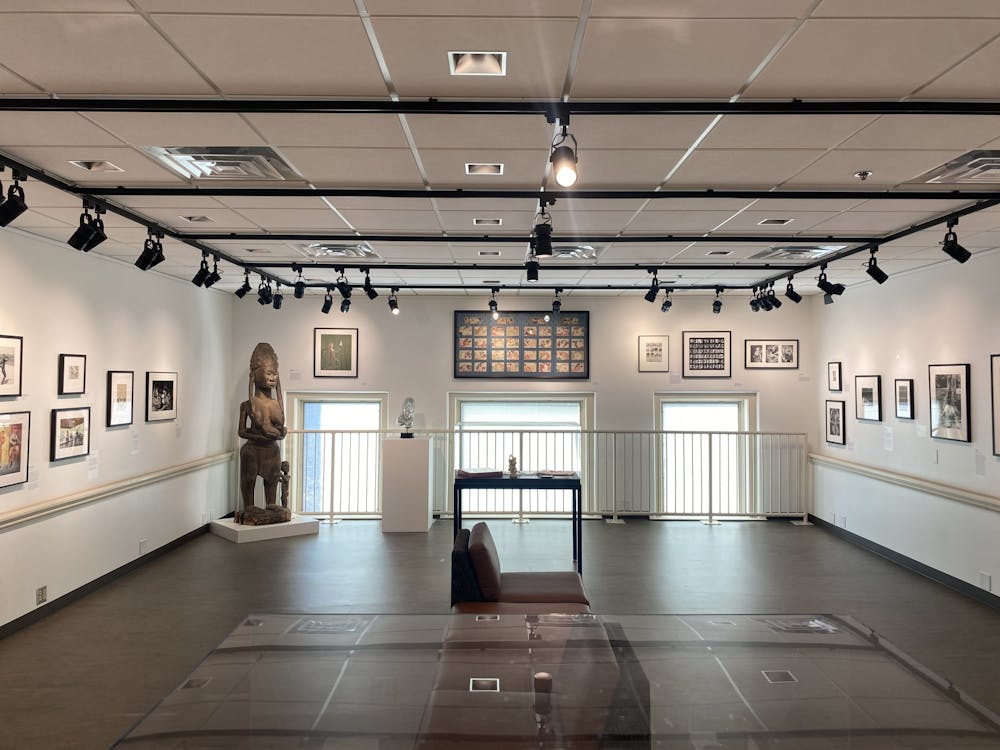The Kinsey Institute opened the Dr. Caroline Beebe Gallery on Nov. 11 at Lindley Hall. The exhibit is open to IU students free of charge.
The gallery features a collection of artwork, artifacts and photographs focusing on stories of human sexuality and gender diversity. The collection itself is a small sample from the vast archives of the Kinsey Institute.
The gallery consists of a range of media: paintings from the 1910s, photographs from the ‘60s and ‘70s and artifacts dating back thousands of years, all capturing the diversity of human sexuality and gender.
Related: [Constellation Stage and Screen to welcome ‘Elf the Musical’ Dec. 15]
IU senior Davis Macke said he was amazed by how far back some of the collection’s dates go.
“I didn’t know that people from thousands of years ago were expressing their sexuality so freely and artistically,” Macke said. “I always kind of assumed that people from way back didn’t care; they were more focused on surviving and growing food.”
The Beebe Gallery invites IU students to explore a unique experience that is not typically accessible to the public.
“It gives us a space where we can highlight the portions of the institute collections for students, staff and faculty to see in a way they wouldn’t otherwise be able to,” Marie Metelnick, a communications media specialist at the Kinsey Institute, said.
The Kinsey Institute’s art, artifact and photography collection features approximately 110,000 items. Their library and archives contain more than 600,000 items.
Related: [COLUMN: November film round-up: reviewing ‘Bones and All,’ ‘She Said’ and more]
Rebecca Fasman, the curator for the Kinsey Institute, said in an email that Dr. Kinsey had been known to collect various artifacts of sexual identities even before the institute’s establishment. Given that it’s the 75th anniversary of the Institute being open, she wanted to commemorate that activity.
“We are honored to collect and preserve deeply important historical and contemporary collections of material culture related to human sexuality,” Fasman said in the email. “The stories contained in the collection speak to emotion, evolution, love, connection — basically the most fundamental aspects of humanity.”




